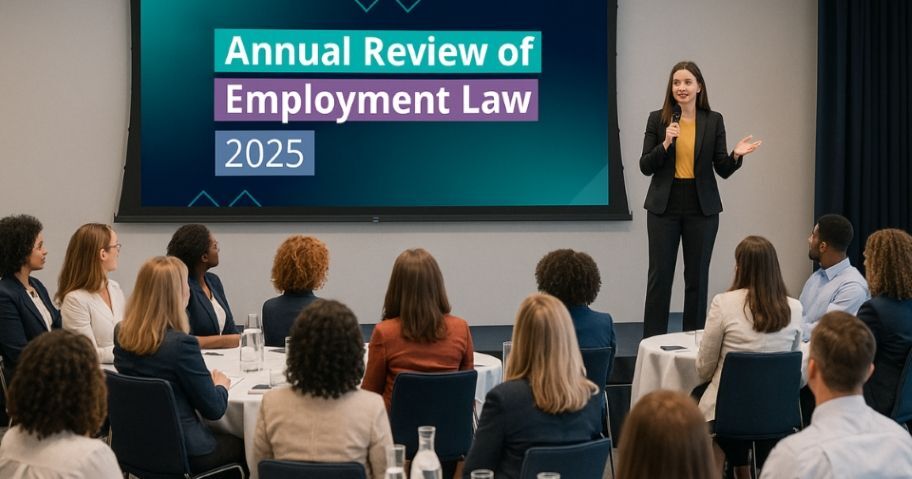Jason Elliott was called to the Bar of Northern Ireland in 2013 and is the Associate Head of School of Law at Ulster University. As a practising barrister, he has developed a largely civil practice representing individuals, companies and public bodies in litigation. This covers a wide range of areas including personal injuries, wills and employment law. In terms of employment law, he has represented both applicants and respondents in the Industrial Tribunal. At Ulster University, Jason lectures extensively on the civil areas of practise such as Equity and Trusts and delivers employment law lectures for both undergraduate and postgraduate students.
Respondent’s cross-appeal upheld because the internal appeal as part of the dismissal process was not fully considered by the Tribunal in determining that the dismissal was procedurally unfair.
The claimant’s employment transferred to the respondent in May 2018. He worked as a Senior Underwriter. In relation to an insurance claim with potential costs of c. $53 million the claimant outlined how he felt that it may not be valid and whilst he did not say it was fraudulent it was understood by others that it was implied. The claimant asserted that the reason for the incident was not an underground blowout which was claimed but rather a loss of circulation. The claimant also repeated this to another manager. The claimant stated that these were protected disclosures. When the claim continued the claimant was asked for his advice – he sought advice from drilling engineers and wrote back to say that he felt that it was not a valid claim. The claimant emailed this, and it was found to be a further protected disclosure.
As the claim continued – the claimant challenged the report of another. The claimant was informed of the outcome, but he emailed stating that he was not convinced that it was a valid claim. The claimant also sent a news article relating, to what he considered, a similar situation where there was corruption. Both of these elements were argued to be protected disclosures, but the Tribunal disagreed.
Later in the year – the claimant had a meeting with management where personal objectives were set for him. He had not been given these before, and the process was new to him. This was regarded by the Tribunal at first instance as amounting to a detriment relating to his protected disclosures. The objectives were not being met, and it led to performance review. This continued until August 2021 when his employment was terminated. Throughout the process the claimant continued to outline his issues with the claim he felt was fraudulent.
At first instance, as noted above, the Tribunal found that there were some protected disclosures made by the claimant in relation to the claim. Some of the issues raised by the claimant surrounding it such as other news clippings were not found to meet the criteria for a protected disclosure. The issue was whether the dismissal related to the protected disclosure. The Tribunal found that the protected disclosures were not the principal reason for the dismissal. This led to an appeal from the claimant.
The EAT stated that the Tribunal did not err in its analysis of the law surrounding protected disclosures or holding that the detriments were not on the grounds, or principally, on the grounds of the protected disclosures. Instead, they were found to be on the performance related aspects of the claimant’s work. However, the dismissal was found to have been unfair on the basis of the process that had been undertaken by the respondent. The respondent cross-appealed arguing that the Tribunal had not considered the appeal that took place as part of the dismissal. The EAT found that the Tribunal had not considered the appeal at all in its overall analysis despite having made detailed findings of fact relating to it. Therefore, it would have to be analysed as to whether the procedural failings had been remedied by the appeals process. Therefore, the case was remitted back to the Tribunal on this basis.
The issues of protected disclosures can be occasionally technical and here whilst there was a finding of such disclosures, it was found that the detriments complained of where not principally due to those disclosures. Further, the EAT makes it clear that the Tribunal has to consider whether the internal appeal process as part of the disciplinary process is sufficient to cure or remedy any procedural failings in the original decision.
You can read the case in full here.
Continue reading
We help hundreds of people like you understand how the latest changes in employment law impact your business.
Please log in to view the full article.
What you'll get:
- Help understand the ramifications of each important case from NI, GB and Europe
- Ensure your organisation's policies and procedures are fully compliant with NI law
- 24/7 access to all the content in the Legal Island Vault for research case law and HR issues
- Receive free preliminary advice on workplace issues from the employment team
Already a subscriber? Log in now or start a free trial






